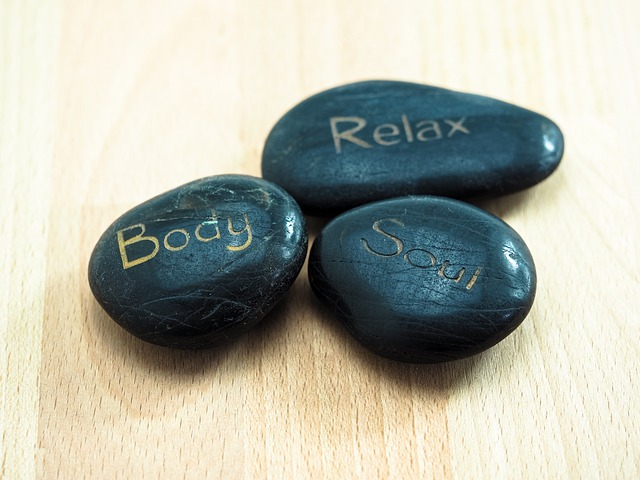Anxiety management involves understanding symptoms, employing strategies like cognitive behavioral therapy (CBT) and mindfulness meditation, and adopting regular fitness and exercise plans. Physical activity releases endorphins, reduces stress, promotes mindfulness through exercises like yoga, and fosters mental resilience. Structured routines, outdoor activities, social interaction, and setting achievable fitness goals are practical ways to integrate fitness and exercise plans into an anxiety management strategy.
Anxiety is a prevalent condition affecting individuals across various demographics, but managing it effectively can foster resilience and enhance overall well-being. This article explores powerful therapeutic practices aimed at reducing anxiety and building mental fortitude. We delve into understanding the nuances of anxiety, its signs, and underlying causes. Additionally, we highlight the significant role that fitness and exercise plans play in managing this pervasive emotion. Through evidence-based approaches, discover practical strategies to integrate into your routine, offering a holistic path to combating anxiety and promoting resilience.
- Understanding Anxiety: Recognizing Signs and Causes
- The Role of Fitness and Exercise in Managing Anxiety
- Evidence-Based Therapeutic Practices for Resilience Building
- Integrating Exercise into Your Routine: Practical Tips and Strategies
Understanding Anxiety: Recognizing Signs and Causes

Anxiety is a common experience, but when it becomes overwhelming and persistent, it can significantly impact daily life. Understanding anxiety involves recognizing its signs and causes, which are often multifaceted. Physically, symptoms may include rapid heartbeat, sweating, and shortness of breath. Mentally, individuals might experience persistent worry, fear, or restlessness. In some cases, anxiety can be triggered by specific situations, such as public speaking or social interactions, while for others, it may be more chronic and difficult to pinpoint.
Fitness and exercise plans have emerged as powerful tools in managing anxiety. Regular physical activity stimulates the release of endorphins, natural chemicals in the brain that act as mood elevators, reducing feelings of stress and anxiety. Moreover, structured routines, such as dedicated workout sessions, can provide a sense of control and structure, counteracting some of the chaos and uncertainty often associated with anxious thoughts. Incorporating activities like yoga or mindfulness-based exercises into one’s fitness regimen can further enhance mental resilience by teaching individuals to focus on the present moment, thereby reducing rumination on past or future events that often trigger anxiety.
The Role of Fitness and Exercise in Managing Anxiety

Engaging in regular fitness and exercise plans has been scientifically proven to be a powerful tool in managing anxiety. Physical activity stimulates the release of endorphins, often referred to as ‘feel-good’ hormones, which can significantly reduce symptoms of anxiety and depression. These endorphins act as natural painkillers and mood elevators, promoting a sense of relaxation and well-being. Moreover, exercise provides an outlet for stress relief, allowing individuals to channel their anxious energy into productive physical exertion.
Fitness and exercise plans can take various forms, from structured gym routines to outdoor activities like hiking or yoga. Incorporating these into daily or weekly schedules can foster a sense of control and accomplishment, which is particularly beneficial for anxiety management. The discipline and focus required for consistent workouts can also serve as a mental distraction from anxious thoughts. Additionally, engaging in physical activities with others, through team sports or group fitness classes, offers social interaction that can further alleviate anxiety and build resilience.
Evidence-Based Therapeutic Practices for Resilience Building

Evidence-based therapeutic practices, such as cognitive behavioral therapy (CBT) and mindfulness meditation, have been shown to significantly reduce anxiety and build resilience. CBT helps individuals identify and challenge negative thought patterns that contribute to anxiety, while mindfulness meditation cultivates present-moment awareness, enabling better stress management.
Fitness and exercise plans also play a crucial role in enhancing resilience. Regular physical activity boosts the release of endorphins, which act as natural mood lifters, reducing feelings of anxiety and depression. Moreover, structured exercise routines can improve sleep quality, another vital component in managing stress levels. Combining evidence-based therapies with tailored fitness plans offers a comprehensive approach to building mental and physical resilience against anxiety.
Integrating Exercise into Your Routine: Practical Tips and Strategies

Incorporating regular exercise into your routine is a powerful therapeutic practice that can significantly reduce anxiety and boost resilience. Physical activity stimulates the release of endorphins, often referred to as ‘feel-good’ hormones, which act as natural painkillers and mood elevators. This biochemical response not only enhances overall well-being but also provides an effective coping mechanism for managing anxiety. Moreover, structured fitness and exercise plans can help redirect focus away from anxious thoughts, fostering a sense of mental clarity and calm.
Practical tips to integrate exercise into your daily routine include setting achievable goals, such as 30 minutes of moderate-intensity activity most days of the week. Start with simple activities like brisk walking or cycling, gradually increasing the intensity and variety to include strength training or HIIT workouts. Consistency is key; consider scheduling exercise as an important appointment with yourself, and make it a non-negotiable part of your routine. Track your progress using fitness apps or a journal to stay motivated and celebrate small wins along the way.
Anxiety can be a manageable condition with the right tools. By understanding the signs and causes, individuals can empower themselves to take control of their mental health. Incorporating evidence-based therapeutic practices, such as tailored fitness and exercise plans, into daily routines has been shown to significantly reduce anxiety and build resilience. Implementing practical strategies discussed in this article can help create a balanced lifestyle that promotes overall well-being. Remember, small steps towards managing anxiety through fitness and exercise can lead to substantial improvements in quality of life.
